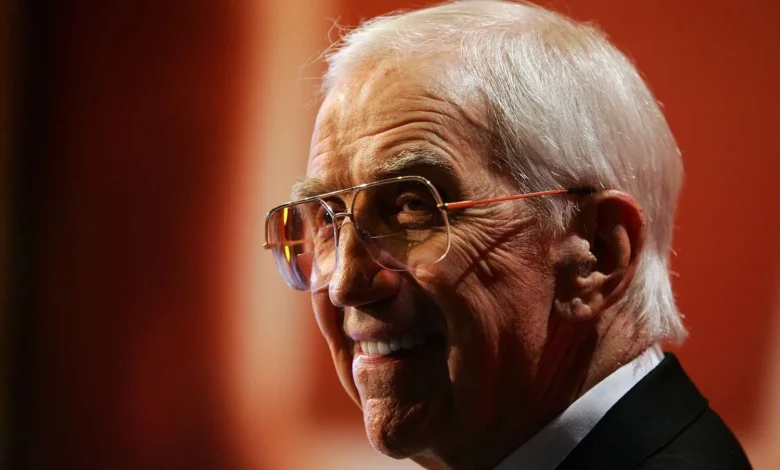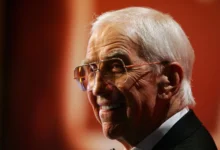The Truth Behind Ed McMahon and Publishers Clearing House: Separating Fact from Fiction?

Many Americans have associated Ed McMahon with the famous Publishers Clearing House sweepstakes for decades. Images of Ed McMahon showing up on doorsteps with an oversized check, balloons, and a big smile have become iconic in American pop culture. However, a closer look reveals an interesting twist in this story. In reality, Ed McMahon has yet to work for Publishers Clearing House. Yet, the belief that he was a central figure in their sweepstakes campaigns has persisted. So, what exactly happened, and why is there so much confusion?
In this article, we’ll explore the strange case of Ed McMahon, his actual sweepstakes involvement, and the origins of the misattribution with Publishers Clearing House. By diving into this pop culture mystery, we can better understand how media memories, nostalgia, and even the Mandela Effect affect our perception of Ed McMahon and his association with Publishers Clearing House.
Who Was Ed McMahon?
Ed McMahon was a prominent television personality, comedian, and announcer best known for his work as Johnny Carson’s sidekick on The Tonight Show and as the host of Star Search. With his deep voice, signature laugh, and warm presence, Ed McMahon became a beloved household name throughout the 1970s, 1980s, and 1990s.
However, for many people, McMahon’s name is also associated with a unique role: delivering giant checks to sweepstakes winners. In the minds of millions, he was the friendly face of the Publishers Clearing House prize patrol, delivering life-changing winnings to lucky winners across the country. But in reality, this perception is part of a popular misconception. To understand why, we must examine what McMahon did and how this myth grew.
The Real Story: Ed McMahon and American Family Publishers
While many believe that Ed McMahon was affiliated with Publishers Clearing House, the truth is that he worked with a different company: American Family Publishers (AFP). During the late 1980s and early 1990s, McMahon appeared in advertisements for AFP alongside fellow television personality Dick Clark. The two promoted AFP sweepstakes, urging viewers to send in their entries for a chance to win millions of dollars. McMahon’s warm and recognizable presence in these ads made him the face of the company, and for a time, he was one of the most prominent figures in sweepstakes marketing.
In the AFP commercials, McMahon and Clark would encourage people to enter the sweepstakes, emphasizing the huge prizes and the possibility of life-changing winnings. However, unlike the prize patrol image associated with Publishers Clearing House, McMahon did not personally deliver checks to winners’ homes. Instead, he was simply the spokesperson. American Family Publishers was a direct competitor to Publishers Clearing House, and the two companies used similar marketing techniques to encourage people to enter their respective sweepstakes.
The Mandela Effect: Why People Remember Ed McMahon and Publishers Clearing House Together
So, if Ed McMahon never worked for Publishers Clearing House, why do so many people vividly remember him delivering Publishers Clearing House checks? This phenomenon can be attributed to the Mandela Effect, a term that describes instances where large groups of people remember something differently from how it happened.
Named after the false memory that many people had of Nelson Mandela dying in prison (he passed away in 2013, long after his release), the Mandela Effect highlights how collective false memories can be formed. In this case, the Mandela Effect has led people to wrongly associate Ed McMahon with Publishers Clearing House, even though he was affiliated with American Family Publishers.
There are several possible explanations for this widespread false memory:
- Similar Sweepstakes Advertising: Both Publishers Clearing House and American Family Publishers used similar sweepstakes marketing tactics, including mailing people entry forms, offering large cash prizes, and promoting the idea of a “surprise” check delivery. The overlap in marketing approaches may have blurred the lines between the two companies in the public’s minds.
- Ed McMahon’s Popularity: Ed McMahon was a prominent television personality and a familiar face in homes across America. His popularity and long-standing presence in the media made him more memorable than the details of the sweepstakes he promoted. As a result, people remember him as the “sweepstakes guy” without differentiating between AFP and Publishers Clearing House.
- Cultural References and Parodies: Over the years, pop culture references have reinforced the idea that Ed McMahon worked for Publishers Clearing House. Television shows, movies, and comedians have often parodied the image of McMahon arriving at someone’s door with a check, balloons, and cameras, unintentionally contributing to the myth.
- The Power of Nostalgia: For many Americans, the image of McMahon handing over a check brings back nostalgia for a simpler time. This nostalgia can distort memories, making people more likely to associate McMahon with the iconic prize patrol from Publishers Clearing House.
Debunking the Myth: How Publishers Clearing House Operates
Publishers Clearing House is an entirely separate company from American Family Publishers and has been in the business of sweepstakes and direct marketing since the 1950s. The PCH Prize Patrol began in the late 1980s and has always consisted of employees who surprise winners with prizes. Unlike American Family Publishers’ promotional approach, which relied on celebrities like Ed McMahon, Publishers Clearing House has traditionally used its employees to deliver the checks and create memorable winner experiences.
Publishers Clearing House sweepstakes are still active today, and the Prize Patrol is a central part of the company’s brand. Winners are often surprised at home, work, or even in public places with the famous “big check,” balloons, and cameras capturing the moment. However, despite popular belief, Ed McMahon was never a part of these prize deliveries.
The Impact of the Ed McMahon Publishers Clearing House Myth
While the truth is that Ed McMahon never represented Publishers Clearing House, the myth surrounding his association with the company has become deeply ingrained in American pop culture. This misconception has led to countless memes, jokes, and references in popular media. For example, people often joke about “waiting for Ed McMahon” to show up at their door with a big check, even though he never did this for Publishers Clearing House.
The Ed McMahon Publishers Clearing House myth has even taken on a life of its own online. Social media platforms are filled with debates about why people remember McMahon delivering checks for Publishers Clearing House, with some insisting that they vividly recall seeing him in these roles. This phenomenon has fueled discussions about false memories and the Mandela Effect, making it a fascinating case study in collective misremembering.
Ed McMahon’s Legacy Beyond Sweepstakes
Even though Ed McMahon’s association with Publishers Clearing House is a myth, his impact on American pop culture remains significant. McMahon’s career spanned several decades, and his work on The Tonight Show alongside Johnny Carson and his role on Star Search left an indelible mark on television history. Beyond his contributions to the sweepstakes industry through American Family Publishers, McMahon’s iconic voice and laugh became symbols of a golden era in television.
Despite his passing in 2009, Ed McMahon remains a beloved figure, remembered for his work in television and his unique role in sweepstakes advertising. The fact that he is still associated with Publishers Clearing House—even inaccurately—shows his lasting impact on the collective American consciousness.
Conclusion
The belief that Ed McMahon was the face of Publishers Clearing House is a classic example of the Mandela Effect—a collective false memory that has persisted over time. While McMahon did indeed promote sweepstakes, his work was for American Family Publishers, not Publishers Clearing House. The similar nature of AFP’s advertising campaigns, combined with McMahon’s popularity and enduring cultural references, has led many to mistakenly associate him with Publishers Clearing House.
Ed McMahon never showed up on doorsteps with the Publishers Clearing House Prize Patrol. Yet, the myth continues to thrive, reminding us how popular culture, nostalgia, and the power of suggestion can shape our memories. While this misconception may never entirely disappear, understanding the facts behind the Ed McMahon Publishers Clearing House story sheds light on how collective memories are formed and maintained.
Ed McMahon’s legacy endures not only as a television icon but also as an intriguing figure in American pop culture and sweepstakes lore. Although he had never worked for Publishers Clearing House, his name would likely remain intertwined with the brand in the public’s imagination for years.
